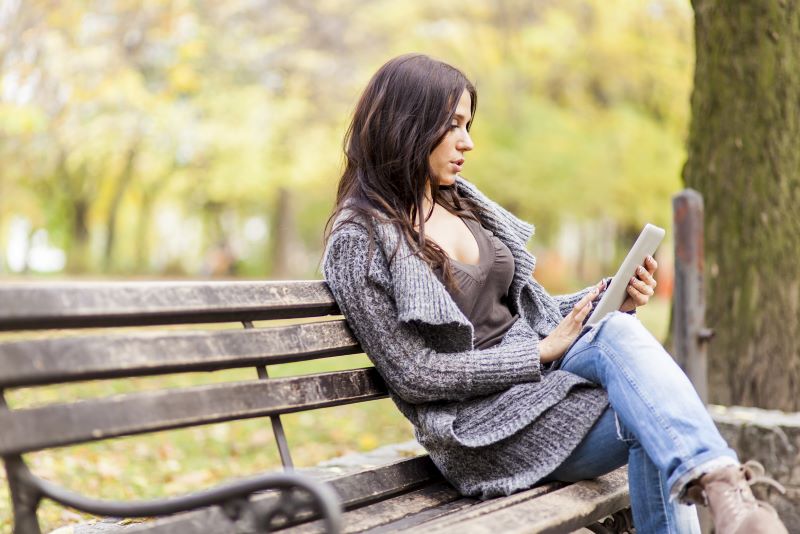What do you think of this article?
By Dr. David Woo - June 21, 2020

Getting exercise and getting out of the house are important ways to maintain good physical and mental health, especially after months of stay-at-home orders. Research tells us that spending time outside has a wide-range of positive effects on our health—being in green spaces can help lower the risk of high blood pressure, cardiovascular disease, diabetes, stress, and even premature death. (1)
But it’s important to continue to practice social distancing, even as businesses and outdoor areas start to reopen in NYC. Below, I recommend some of the best places to get out in NYC while still being able to maintain social distancing.
City Parks
As many of NYC’s parks are opening and the weather gets warmer, more people will be heading to the city’s green spaces to exercise and breathe some fresh air. Parks in all 5 boroughs will be opening, so if you go to the park closest to you and it’s very crowded, try another. Some parks in New York City have even designated “human parking spots” to help park-goers maintain a safe distance from each other. Find some parks near you here.
Community Gardens
Research shows that gardening may help ease symptoms of anxiety and depression. (2) As a preventative measure to help limit the spread of the coronavirus, NYC’s community gardens have been closed to the public. However, if you’re a member, you may still have access to your community garden. You’ll be required to practice safe social distancing measures, and may need to schedule your time around others to limit the number of people in the garden at one time.
Hudson River Waterfront Greenway
The Hudson River Waterfront Greenway offers almost 13 miles of paved pathway for biking, walking, running, and skating. The path is separated from traffic and also has multiple park areas along the Hudson River, offering beautiful views as well as a safe trail for exercising. Just remember to keep 6 feet of distance from others.
Upstate Hiking Trails
If you have a car, consider visiting one of the many hiking trails at New York State Parks. To promote safe social distancing measures, State Parks may limit parking spots in order to reduce the number of people who can enter at one time. Before heading upstate, pick out a few hiking trails you’d like to visit, just in case your first choice is at capacity. You could also consider going during off-hours, such as weekday afternoons or early morning on weekends.
Beaches in New Jersey
Again, if you have a car, beaches in New Jersey are open to the public as long as safe distancing measures are applied. Beaches in NYC are still closed, and many beaches in New York State are only open to residents of that town.
How to Stay Safe When Outdoors in NYC
- Stick to open spaces – avoid busy areas or socializing indoors.
- Continue to wear a mask when leaving the house.
- Maintain a safe distance. The CDC recommends that people stand at least 6 feet apart. If you find that people are standing too close to you and you need to create more space between you and another person, take a step back, or give them a gentle reminder by saying something like, “Excuse me, could you give me some space?”
- Don’t touch your face.
- Wash your hands thoroughly with soap and water for 20 seconds when you get home.
Stay up-to-date on which state parks are open, and find guides on how to safely and responsibly enjoy the outdoors, at New York State’s Department of Environmental Conservation website.
Getting regular exercise and getting out of the house helps maintain good physical as well as mental health. Whether or not you suffer from any mental health conditions like depression, it’s a great idea to carve out time to safely enjoy the outdoors.
Resources:
1. University of East Anglia. It’s official — spending time outside is good for you. ScienceDaily. Published 6 July 2018. Link. Accessed June 07, 2020.
2. Soga M, Gaston KJ, and Yamaura Y. Gardening is beneficial for health: A meta-analysis. Prev Med Rep. 2016;5:92‐99. Link. Accessed June 8, 2020.
Dr. David Woo is the owner and head clinical psychiatrist at Madison Avenue TMS and Therapy in New York City. Dr. Woo has been seeing patients in private practice since 2002, always with the goals of combining evidence-based medicine with psychodynamic psychotherapy and collaborating with other mental health professionals to ensure the best possible outcomes for his patients. He has been certified to administer TMS at his practice since 2017. His greatest clinical interests include helping patients suffering from depression, anxiety, and obsessive compulsive disorder.
Follow Dr. Woo On









